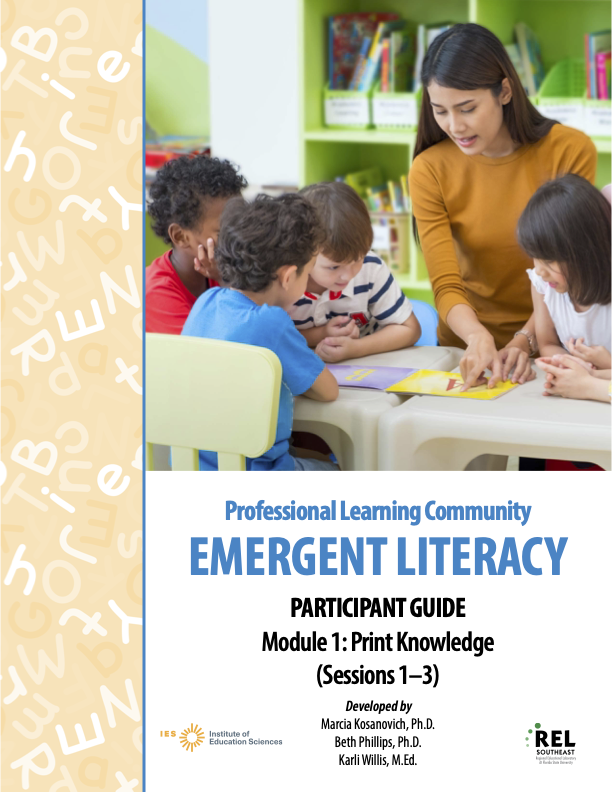
Looking for more? All of the tools and resources below are free for the public to download and use to support reading and literacy instruction. Each are based upon research evidence and designed for teachers, principals, families, and other education leaders. We invite you to explore these resources to improve learning and achievement in your schools and communities.
We are currently aware of some broken links on our website due to recent changes made by our partner sites. We are actively reviewing and updating these links. We appreciate your patience and understanding during this process. If you have any questions or need further assistance, please feel free to contact us.
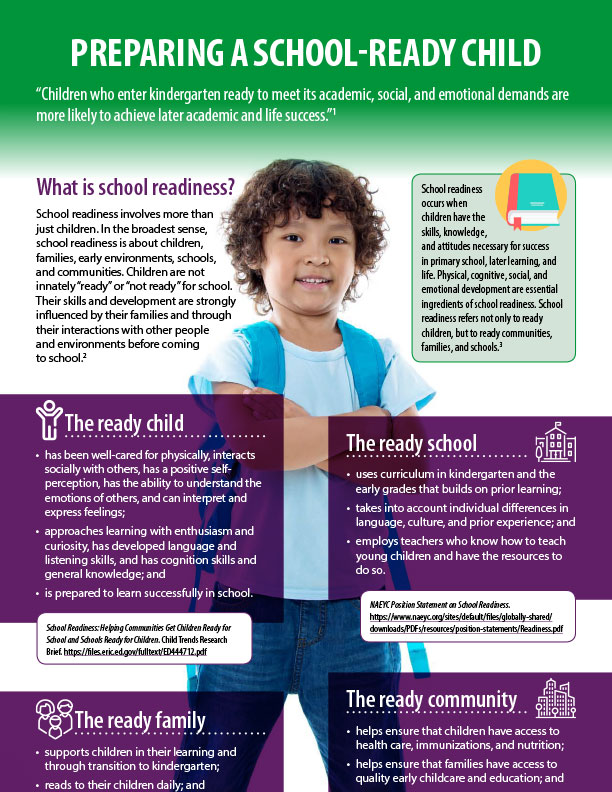
What is School Readiness?
This series of infographics details what children need from their families, environments, schools, and communities to become school-ready. Click here for: The Ready Family, The Ready Child, The Ready Community, The Ready School, Preparing a School-Ready Child.
Developed by REL Southeast
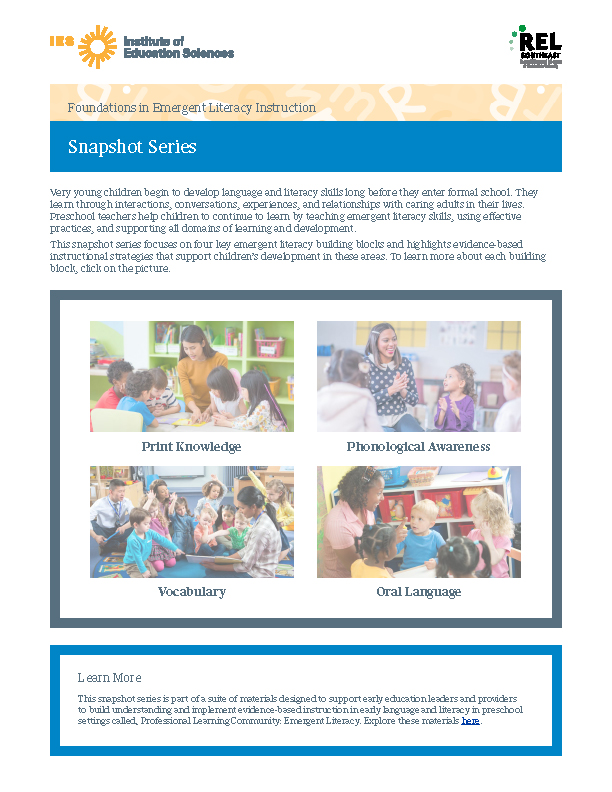
Foundations in Emergent Literacy Instruction
This infographic series highlights evidence-based instructional strategies that support children’s development in key emergent literacy building blocks: print knowledge, phonological awareness, vocabulary, and oral language.
Developed by REL Southeast
Professional Learning Community: Emergent Literacy
This website provides multiple resources for educators and leaders to engage in a professional learning model focused on the four emergent literacy building blocks that are evidence-based, collaborative, and practice-relevant.
Developed by REL Southeast
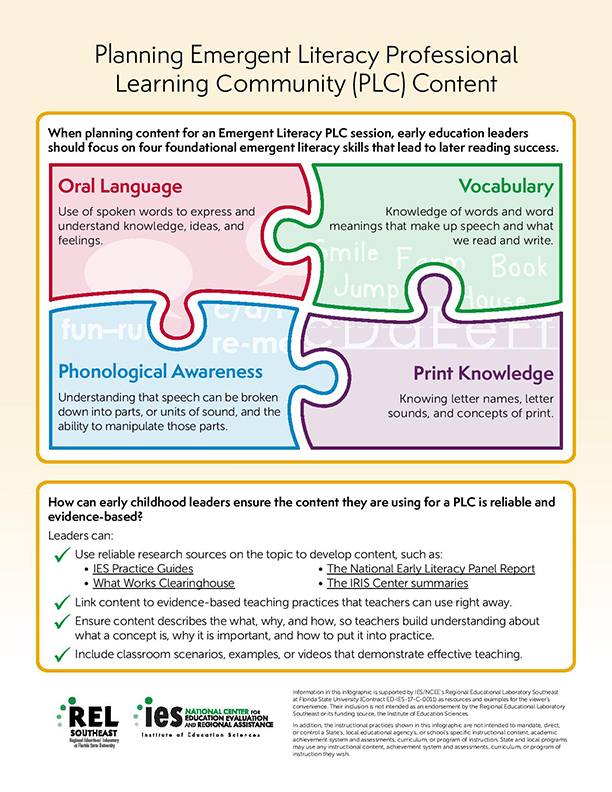
Planning Emergent Literacy Professional Learning Community (PLC) Content
This infographic discusses four foundational emergent literacy skills that lead to later reading success that early education leaders should focus on when planning for an Emergent Literacy PLC session.
Developed by REL Southeast
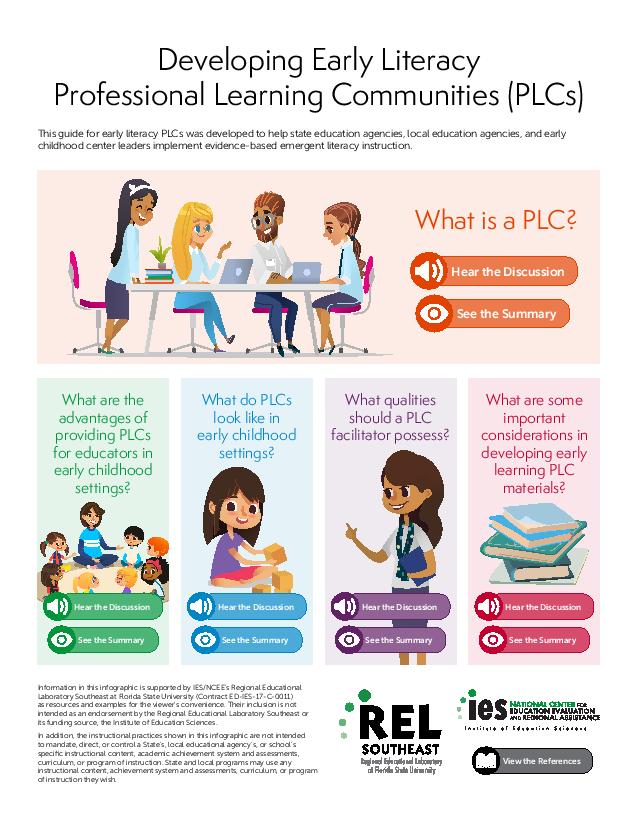
Developing Early Literacy Professional Learning Communities (PLCs)
This guide for early literacy PLCs was developed to help state education agencies, local education agencies, and early childhood center leaders implement evidence-based emergent literacy instruction.
Developed by REL Southeast
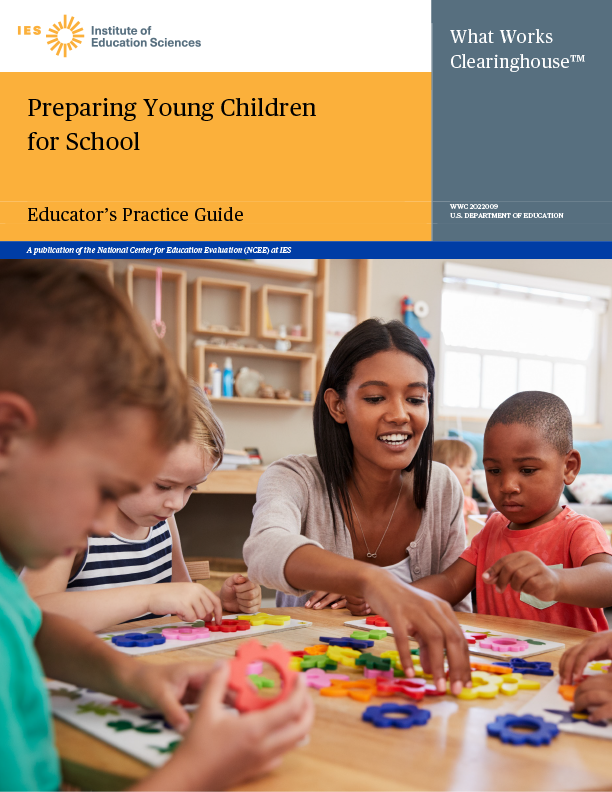
Preparing Young Children for School
This practice guide provides seven recommendations to help educators prepare children in preschool and pre-kindergarten to benefit for learning opportunities in elementary school. Each recommendation includes guidance on practices that can be implemented in early childhood education settings.
Developed by What Works Clearinghouse
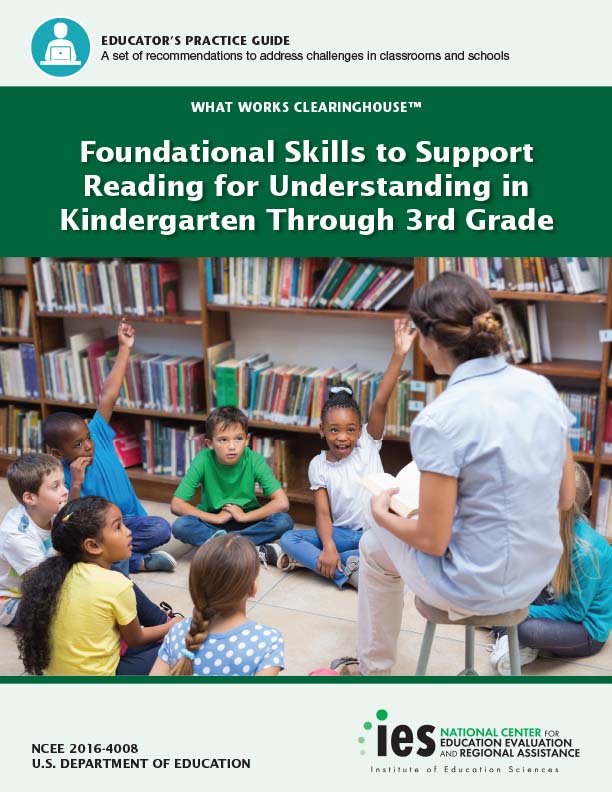
Foundational Skills to Support Reading for Understanding in Kindergarten Through 3rd Grade
This practice guide provides four recommendations for teaching foundational reading skills to students in kindergarten through 3rd grade. Each recommendation includes guidance on practices that can be implemented in classrooms. Click here for the companion to the practice guide, Improving Reading Comprehension in Kindergarten Through 3rd Grade, which includes five steps to support text comprehension in young learners.
Developed by What Works Clearinghouse and REL Southeast
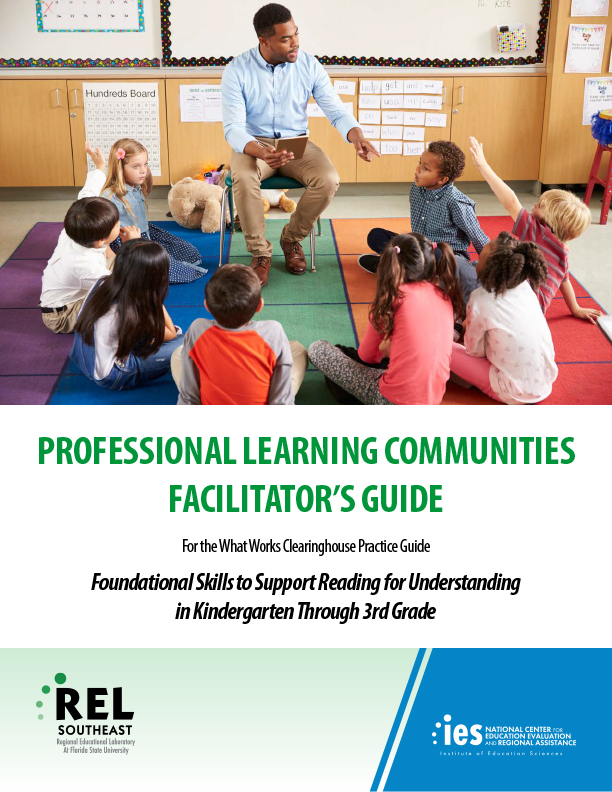
Professional Learning Communities Facilitator’s Guide for the What Works Clearinghouse Practice Guide Foundational Skills to Support Reading for Understanding in Kindergarten Through 3rd Grade
This Professional Learning Community (PLC) Facilitators Guide was developed to support educators in the implementation of recommendations from the What Works Clearinghouse’s Practice Guide Foundational Skills to Support Reading for Understanding in Kindergarten Through 3rd Grade. The practice guide focuses on the foundational reading skills that enable students to read words, relate those words to their oral language, and read connected text with sufficient accuracy and fluency to understand what they read. Click for Professional Learning Communities Participant’s Activities. Click for Classroom Videos.
Developed by REL Southeast
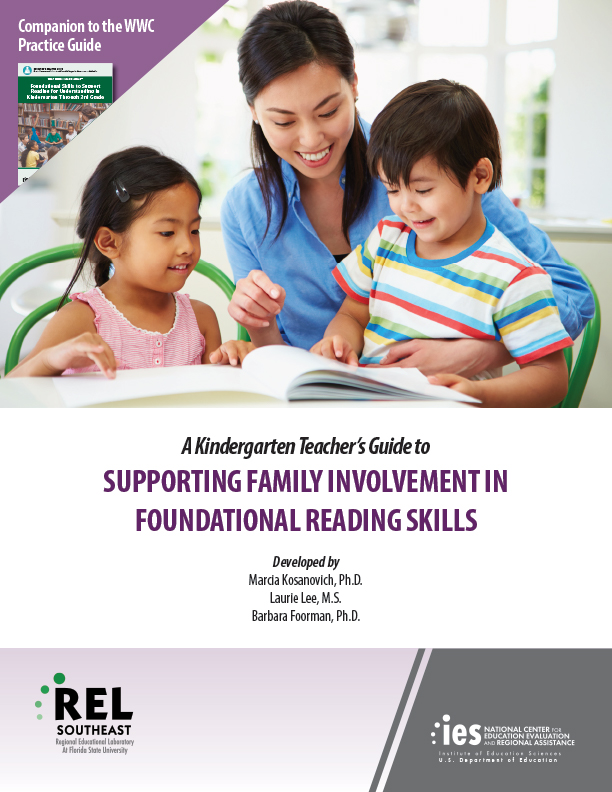
Teacher’s Guides to Supporting Family Involvement in Foundational Reading Skills
This suite of grade specific Teacher Guides is designed for certified teachers to use with families to encourage and facilitate literacy support for children at home. The guides provide Family Activities, Family Videos, and book suggestions that can be used during family literacy nights and parent–teacher conferences. Click here to find the guides for Kindergarten, 1st Grade, 2nd grade, and 3rd grade.
Developed by REL Southeast
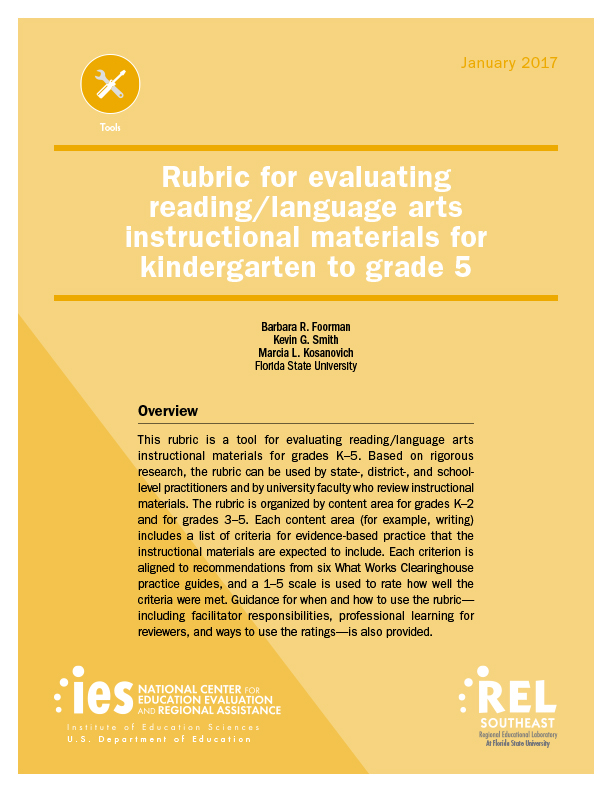
Rubric for evaluating reading/language arts instructional materials for kindergarten to grade 5
This rubric is a tool that can be used by practitioners at the state, district, or school level or by university faculty for evaluating reading/language arts instructional and intervention materials in grades K–5 based on rigorous research and standards. Click for the Companion Tool to Accompany the Instructional Materials Rubric: A user’s guide for reviewers and facilitators. Click for: K-2 Rubric Facilitator Sheet, K-2 Rubric Reviewer Sheet, G3-5 Rubric Facilitator Sheet, G3-5 Rubric Reviewer Sheet.
Developed by REL Southeast
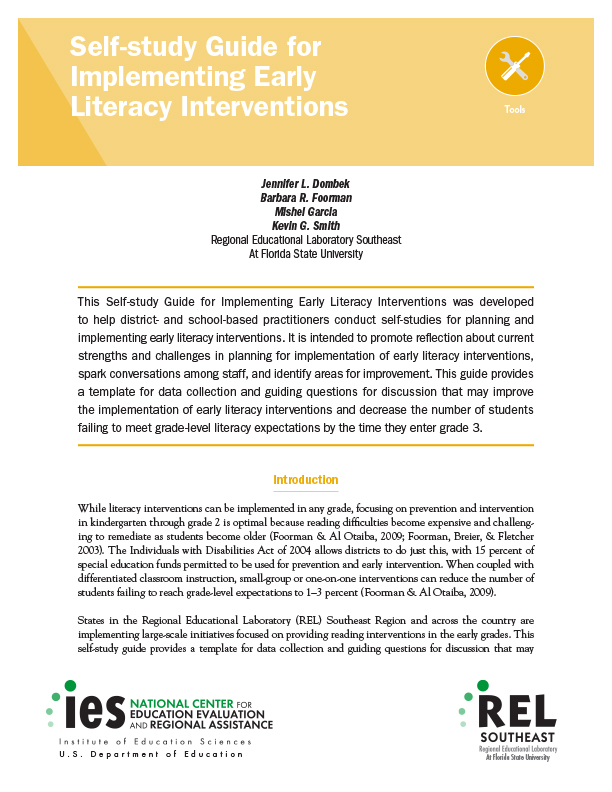
Self-study Guide for Implementing Early Literacy Interventions
This guide helps district and school-based practitioners conduct self-studies for planning and implementing early literacy interventions for students in kindergarten through grade 2. These guides are designed to promote reflection about current strengths and challenges in planning for and implementation of evidence-based literacy practices. The guide is intended to spark conversations among stakeholders and identify areas for improvement. The guide provides templates for data collection and guiding questions for discussion.
Developed by REL Southeast
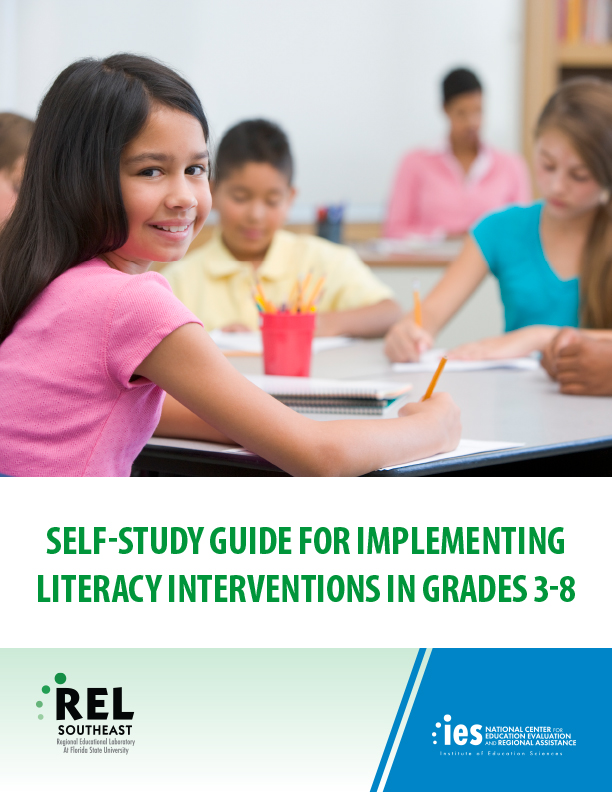
Self-study guide for implementing literacy interventions in grades 3-8
This guide helps district- and school-based practitioners conduct self-studies for planning and implementing literacy interventions for students in grades 3-8. These guides are designed to promote reflection about current strengths and challenges in planning for and implementation of evidence-based literacy practices. The guide is intended to spark conversations among stakeholders and identify areas for improvement. The guide provides templates for data collection and guiding questions for discussion.
Developed by REL Southeast
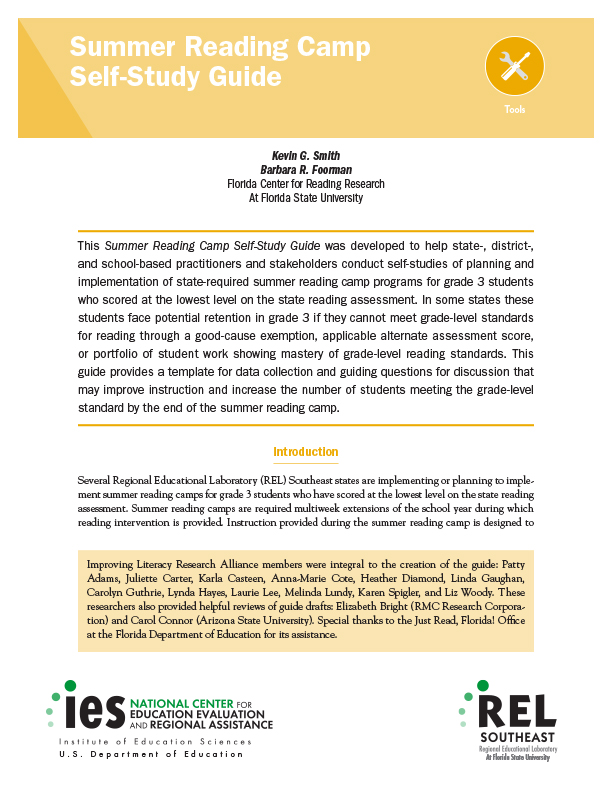
Summer Reading Camp Self-Study Guide
This guide helps facilitate self-studies of planning and implementation of state-required summer reading camp programs for grade 3 students who scored at the lowest level on the state reading assessment. These guides are designed to promote reflection about current strengths and challenges in planning for and implementation of evidence-based literacy practices. The guide is intended to spark conversations among stakeholders and identify areas for improvement. The guide provides templates for data collection and guiding questions for discussion.
Developed by REL Southeast
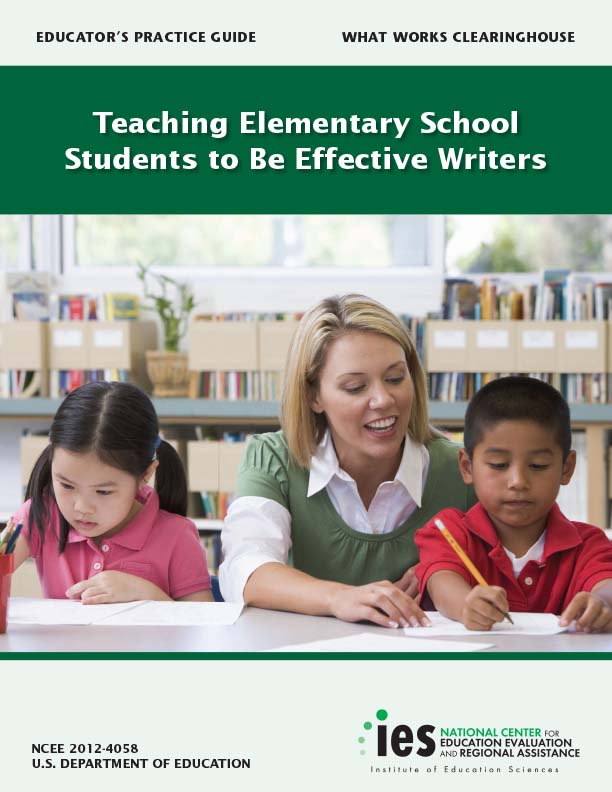
Teaching Elementary School Students to Be Effective Writers
This practice guide provides four recommendations for developing effective writing skills among students in elementary school. Each recommendation includes guidance on practices that can be implemented in classrooms.
Developed by What Works Clearinghouse
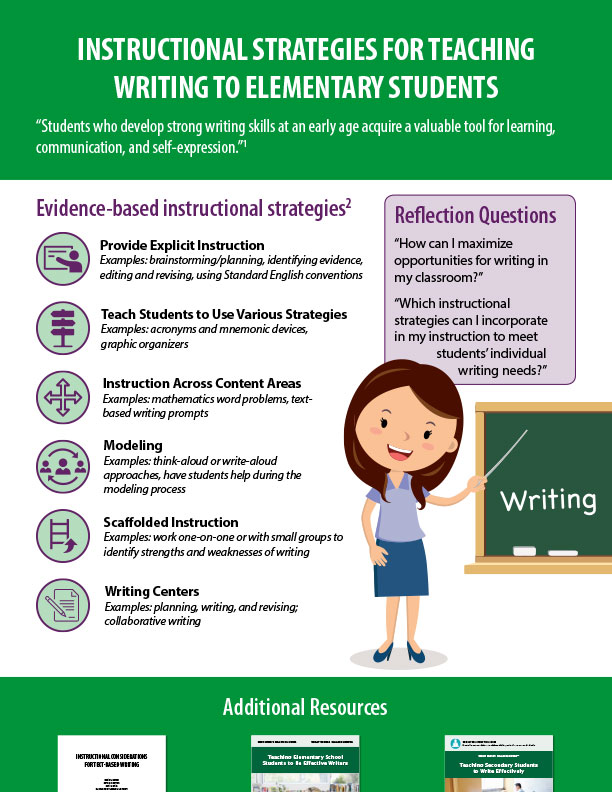
Instructional Strategies for Teaching Writing to Elementary Students
This infographic discusses six evidence-based instructional strategies for teaching writing to elementary students.
Developed by REL Southeast
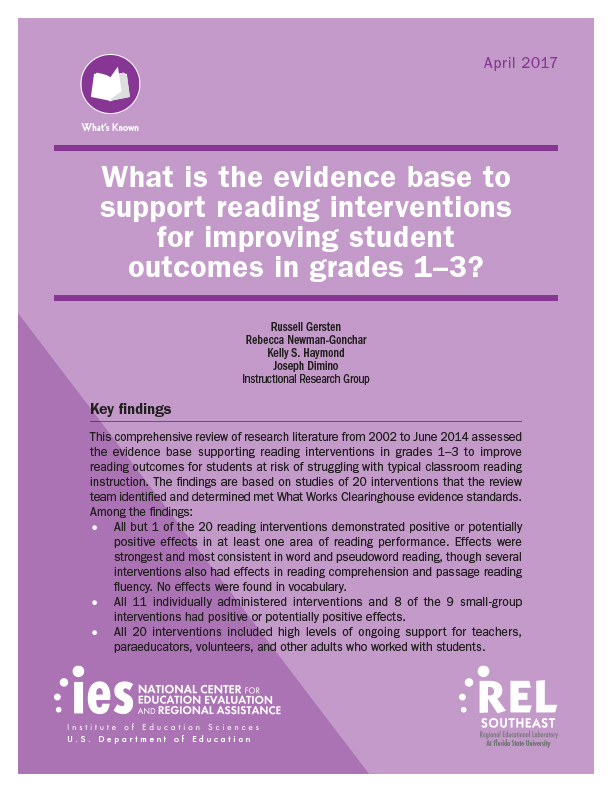
What is the evidence base to support reading interventions for improving student outcomes in grades 1-3?
This report provides administrators, school psychologists, counselors, special educators, and reading specialists with a summary and analysis of the evidence that supports the use of reading interventions in grades 1–3.
Developed by REL Southeast
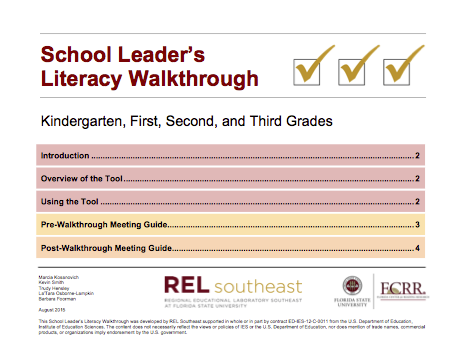
School Leader’s Literacy Walkthrough
This tool was developed to assist school leaders in observing specific research-based practices during literacy instruction in kindergarten through grade 2 classrooms and students’ independent use or application of those practices. The tool aims to help school leaders conduct brief and frequent walkthroughs throughout the school year and is aligned to contemporary state standards.
Developed by REL Southeast

UFLI Resource Hubs
UFLI has developed several resource hubs to assist teachers and parents find the information they need about reading instruction and intervention, disability legislation as it relates to dyslexia, and tools for working with struggling readers at home and in the classroom.
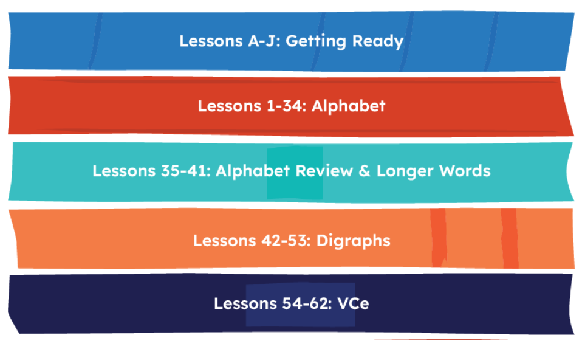
UFLI Foundations Toolbox
The UFLI Foundations Toolbox contains all the lesson resources to accompany the lesson plans provided in the UFLI Foundations manual. These resources are available for anyone to use, even if you do not have the UFLI manual.
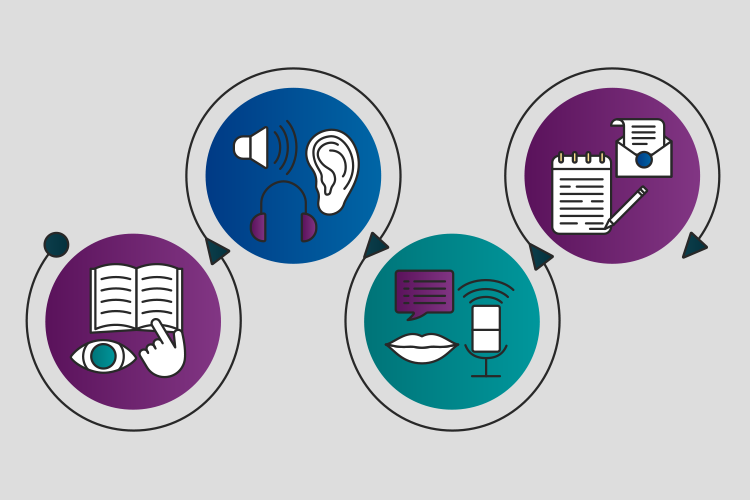
Science of Reading: An Introduction
This introductory course provides information about the science of reading, how the reading brain develops, the importance of word recognition and language comprehension, and practical ways to incorporate the principles of the science of reading into instruction.
Developed by the Florida Department of Education
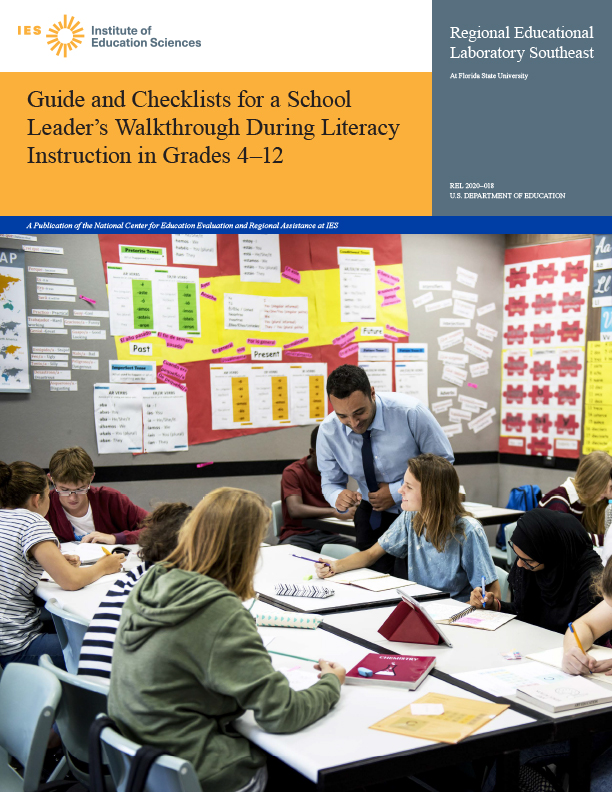
Guide and Checklists for a School Leader’s Walkthrough during Literacy Instruction in Grades 4-12
This tool was developed to assist school leaders in observing specific research-based practices during literacy instruction in grade 4–12 classrooms and students’ independent use or application of those practices. The tool aims to help school leaders conduct brief and frequent walkthroughs throughout the school year. The tool consists of three parts to be used with students in three grade bands: grades 4 and 5, grades 6–8, and grades 9–12.
Developed by REL Southeast
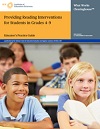
PROVIDING READING INTERVENTIONS FOR STUDENTS IN GRADES 4-9
This practice guide provides four recommendations to help educators recognize and respond to the needs of students struggling with reading in the upper elementary school, middle school, and high school. Each recommendation includes guidance on practices that can be implemented in classrooms.
Developed by What Works Clearinghouse
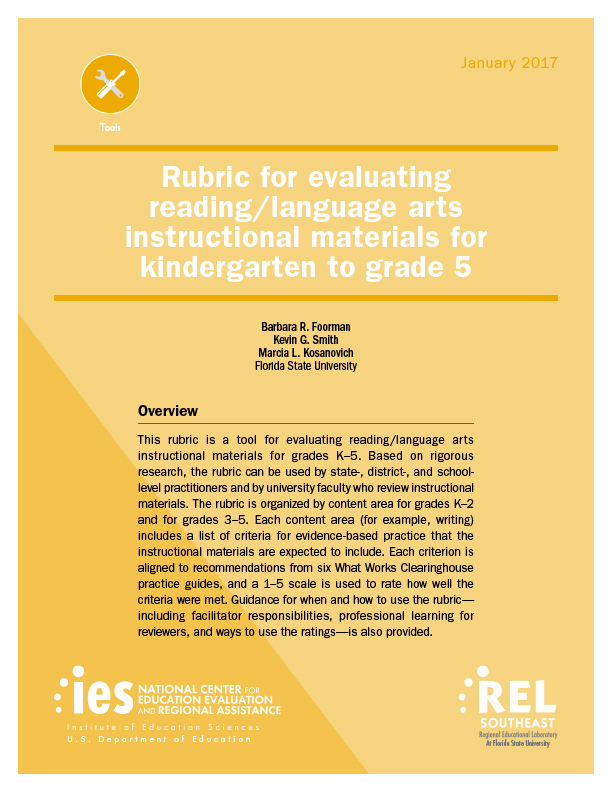
Rubric for evaluating reading/language arts instructional materials for kindergarten to grade 5
This rubric is a tool that can be used by practitioners at the state, district, or school level or by university faculty for evaluating reading/language arts instructional and intervention materials in grades K–5 based on rigorous research and standards. Click for the Companion Tool to Accompany the Instructional Materials Rubric: A user’s guide for reviewers and facilitators. Click for: K-2 Rubric Facilitator Sheet, K-2 Rubric Reviewer Sheet, G3-5 Rubric Facilitator Sheet, G3-5 Rubric Reviewer Sheet.
Developed by REL Southeast
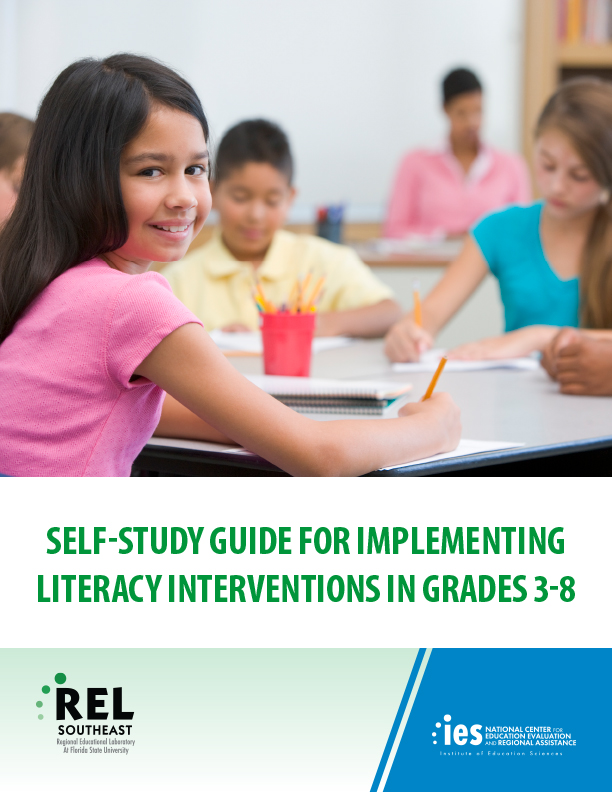
Self-study guide for implementing literacy interventions in grades 3-8
This guide helps district- and school-based practitioners conduct self-studies for planning and implementing literacy interventions for students in grades 3-8. These guides are designed to promote reflection about current strengths and challenges in planning for and implementation of evidence-based literacy practices. The guide is intended to spark conversations among stakeholders and identify areas for improvement. The guide provides templates for data collection and guiding questions for discussion.
Developed by REL Southeast
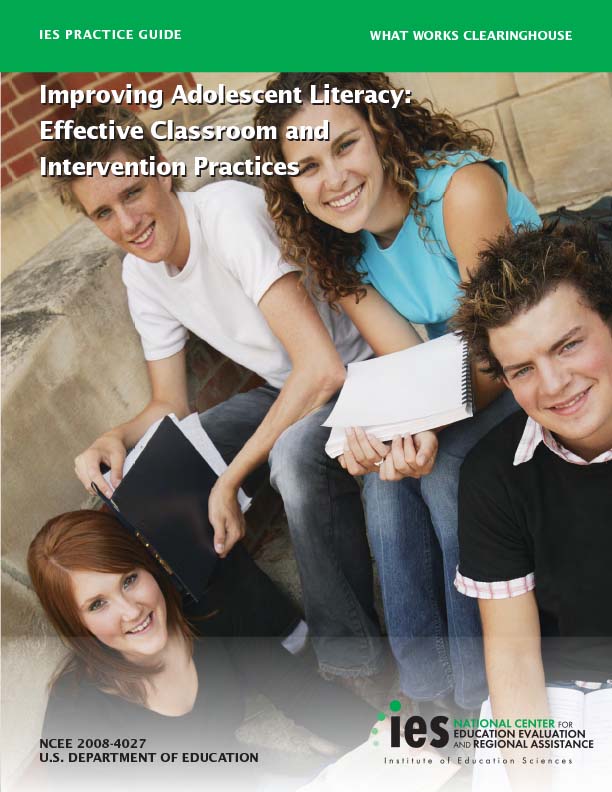
Improving Adolescent Literacy: Effective Classroom and Intervention Practices
This practice guide provides five recommendations for developing literacy skills among adolescents. Each recommendation includes guidance on practices that can be implemented in classrooms.
Developed by What Works Clearinghouse
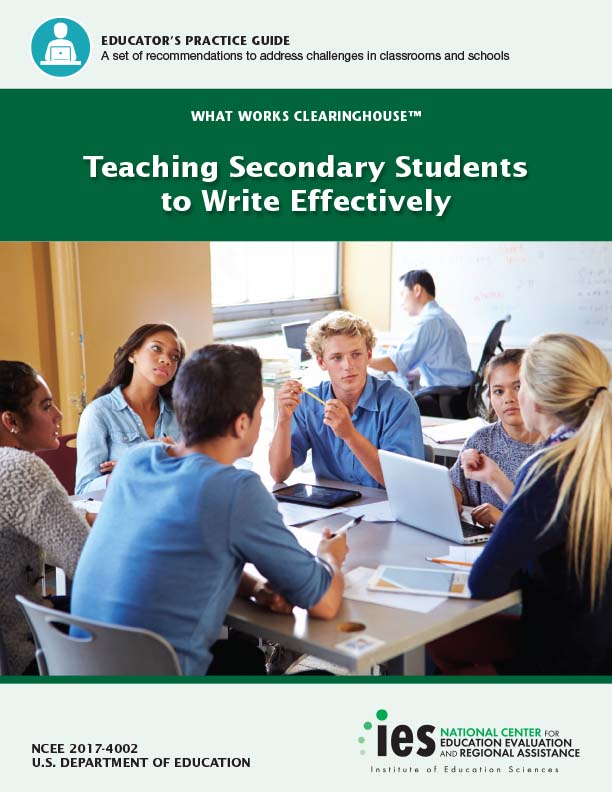
Teaching Secondary Students to Write Effectively
This practice guide provides three recommendations for developing effective writing skills among students in grades 6-12. Each recommendation includes guidance on practices that can be implemented in classrooms.
Developed by What Works Clearinghouse
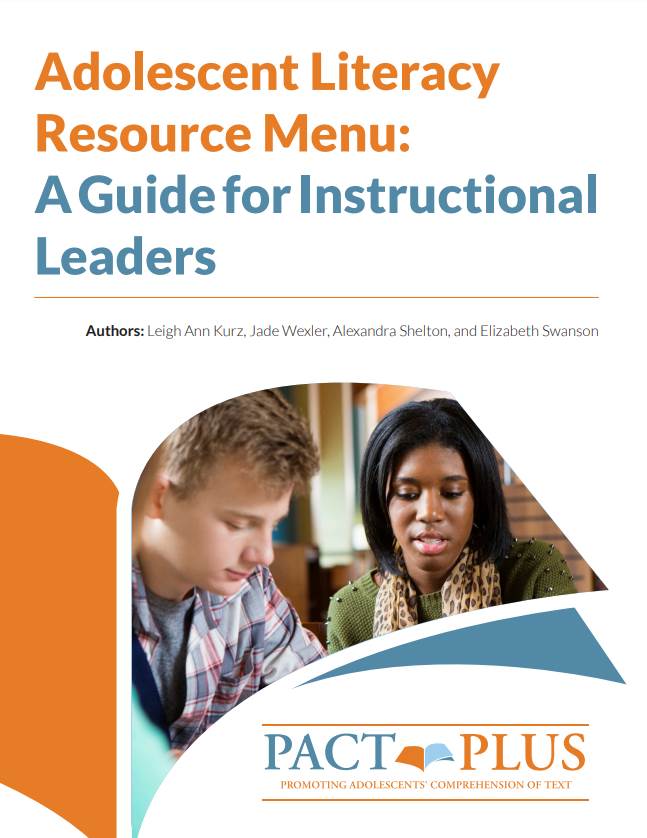
Adolescent Literacy Resource Menu: A Guide for Instructional Leaders
This guide is organized by commonly experienced challenges (e.g., lack of modeling) to teachers implementing evidence-based adolescent literacy practices with fidelity.

Improving Adolescent Literacy
This infographic is based on the recommendations of the What Works Clearinghouse Practice Guide Improving Adolescent Literacy: Effective Classroom and Intervention Practices. It presents strategies that classroom teachers and specialists can use to increase the reading ability of adolescent students.
Developed by REL Southeast
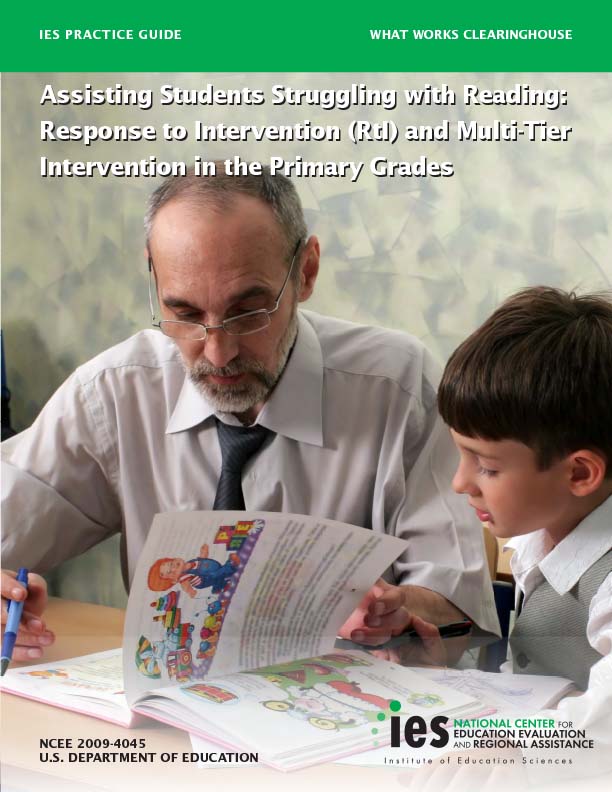
Assisting Students Struggling with Reading: Response to Intervention (RtI) and Multi-Tier Intervention in the Primary Grades
This practice guide provides five recommendations to help educators recognize and respond to the needs of students struggling with reading in the primary grades at the classroom and school levels. Each recommendation includes guidance on practices that can be implemented in classrooms.
Developed by What Works Clearinghouse

PROVIDING READING INTERVENTIONS FOR STUDENTS IN GRADES 4-9
This practice guide provides four recommendations to help educators recognize and respond to the needs of students struggling with reading in the upper elementary school, middle school, and high school. Each recommendation includes guidance on practices that can be implemented in classrooms.
Developed by What Works Clearinghouse
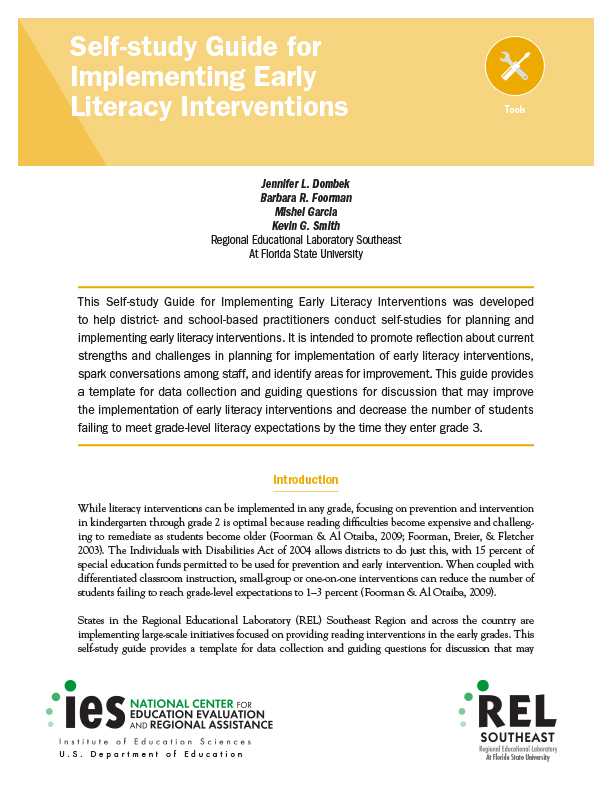
Self-study Guide for Implementing Early Literacy Interventions
This guide helps district and school-based practitioners conduct self-studies for planning and implementing early literacy interventions for students in kindergarten through grade 2. These guides are designed to promote reflection about current strengths and challenges in planning for and implementation of evidence-based literacy practices. The guide is intended to spark conversations among stakeholders and identify areas for improvement. The guide provides templates for data collection and guiding questions for discussion.
Developed by REL Southeast
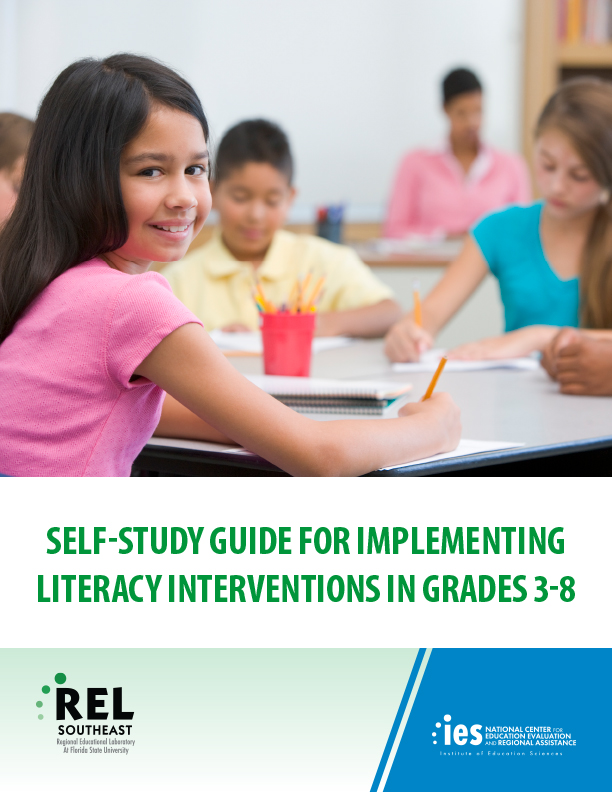
Self-study guide for implementing literacy interventions in grades 3-8
This guide helps district- and school-based practitioners conduct self-studies for planning and implementing literacy interventions for students in grades 3-8. These guides are designed to promote reflection about current strengths and challenges in planning for and implementation of evidence-based literacy practices. The guide is intended to spark conversations among stakeholders and identify areas for improvement. The guide provides templates for data collection and guiding questions for discussion.
Developed by REL Southeast
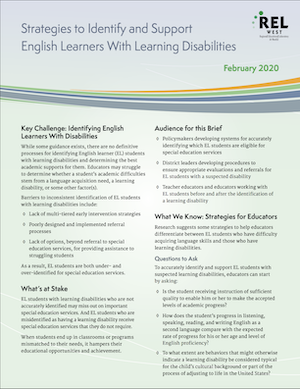
Strategies to Identify and Support English Learners with Learning Disabilities
The brief presents a summary of research and state policy and practices on identifying and supporting English learners with learning disabilities.
Developed by REL West
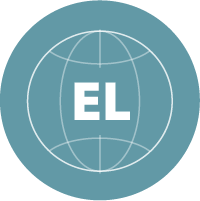
When an English Learner Struggles Academically: Telling the Difference Between Second Language Acquisition and a Possible Learning Disability
This webinar series presents information on language development, second language acquisition, and research-based strategies to appropriately recognize and respond to learning differences and learning disabilities among English learners.
Hosted by REL West
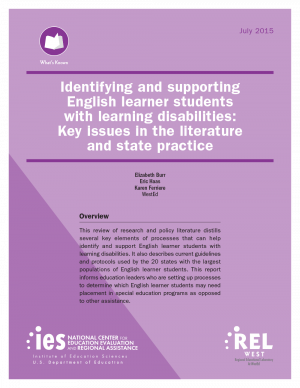
Identifying and supporting English learner students with learning disabilities: Key issues in the literature and state practice
This report includes a review of the research literature on supporting English learners with learning disabilities and of related procedures in 20 states with the largest English learner populations in the U.S.
Developed by REL West
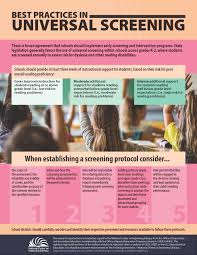
Best Practices in Universal Screening
This infographic details the three levels of instructional support for students and what to consider when establishing a screening protocol.
Developed by the National Center on Improving Literacy
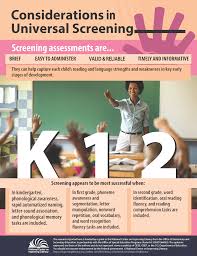
Considerations in Universal Screening
This infographic details the three factors that all successful screening assessments have in common.
Developed by the National Center on Improving Literacy
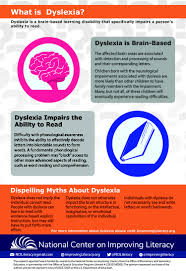
Defining Dyslexia
This brief examines the major elements of the definition of dyslexia to further understand what dyslexia is.
Developed by the National Center on Improving Literacy
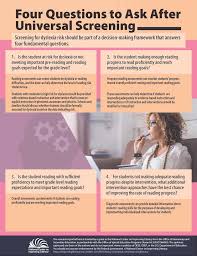
Four Questions to Ask After Universal Screening
This infographic suggests four questions to ask after universal screening.
Developed by the National Center on Improving Literacy
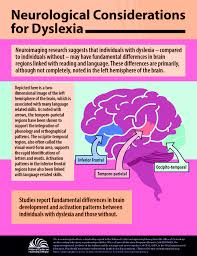
Neurological Considerations for Dyslexia
This infographic details the fundamental differences in brain regions linked with reading and language in children with dyslexia.
Developed by the National Center on Improving Literacy
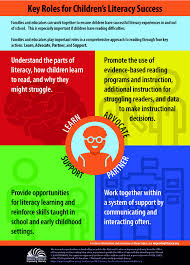
Key Roles for Children’s Literacy Success
This brief explains how families and educators can work together to ensure children – including those with reading difficulties – have successful literacy experiences in and out of school.
Developed by the National Center on Improving Literacy
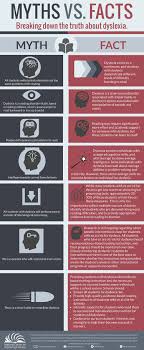
Understanding Dyslexia: Myth vs. Facts
This infographic debunks several myths about dyslexia.
Developed by the National Center on Improving Literacy
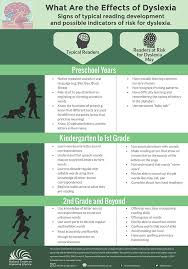
Understanding Dyslexia: What are the Effects of Dyslexia
This infographic highlights signs of typical reading development and possible indicators of risk for dyslexia.
Developed by the National Center on Improving Literacy
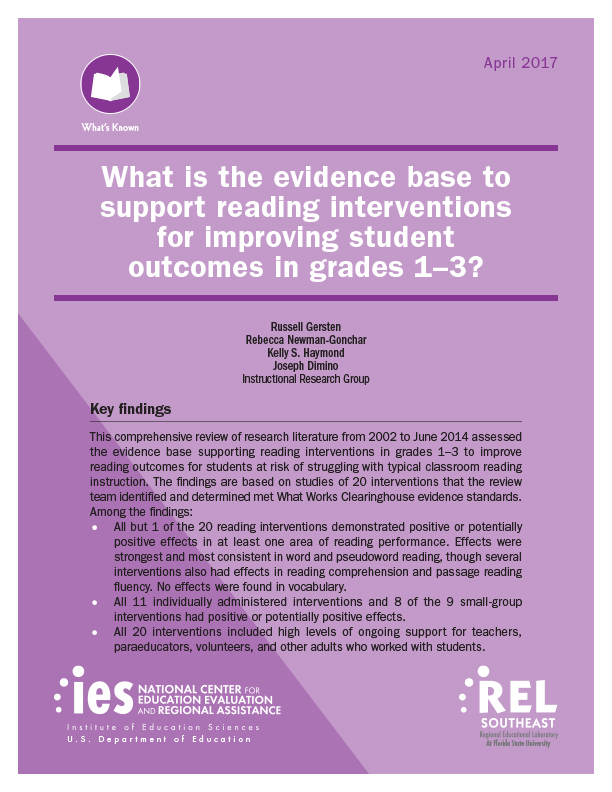
What is the evidence base to support reading interventions for improving student outcomes in grades 1-3?
This report provides administrators, school psychologists, counselors, special educators, and reading specialists with a summary and analysis of the evidence that supports the use of reading interventions in grades 1–3.
Developed by REL Southeast
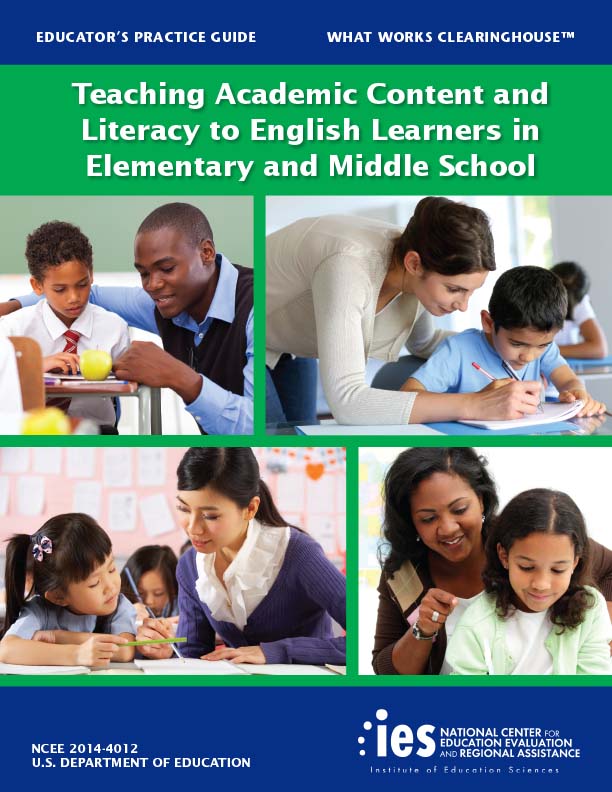
Teaching Academic Content and Literacy to English Learners in Elementary and Middle School
This practice guide provides four recommendations for teaching reading and content area instruction to English learners. Each recommendation includes guidance on practices that can be implemented in classrooms.
Developed by What Works Clearinghouse
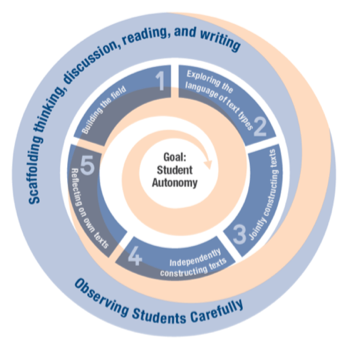
English Learner Students Webinar Series
This webinar series presents strategies for promoting language and literacy development among English learners in the early grades.
Hosted REL West

Effective Practices for Partnering With Families of English Learner Students in Preschool and Kindergarten
This webinar series presents strategies for building effective home-school partnerships to support English learners in preschool and kindergarten.
Hosted by REL West
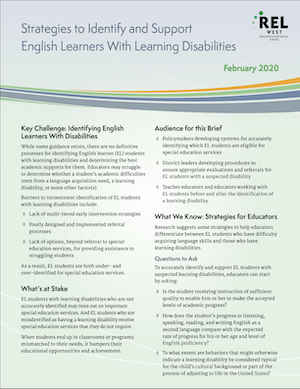
Strategies to Identify and Support English Learners with Learning Disabilities
The brief presents a summary of research and state policy and practices on identifying and supporting English learners with learning disabilities.
Developed by REL West

When an English Learner Struggles Academically: Telling the Difference Between Second Language Acquisition and a Possible Learning Disability
This webinar series presents information on language development, second language acquisition, and research-based strategies to appropriately recognize and respond to learning differences and learning disabilities among English learners.
Hosted by REL West

Scaffolding Structures to Support Academic Conversations for English Learners
This video presents strategies to help teachers engage English learners in academic conversations in the context of a primary grade classroom.
Developed by REL West

Supporting Long Term English Learner Students in Mastering Academic English: A Framework for Success
This webinar presents strategies and practices to support academic language and literacy among English learners, especially learners who may take longer to acquire English language proficiency.
Hosted by REL West

Identifying and supporting English learner students with learning disabilities: Key issues in the literature and state practice
This report includes a review of the research literature on supporting English learners with learning disabilities and of related procedures in 20 states with the largest English learner populations in the U.S.
Developed by REL West

Supporting Young English Learners at Home
These family and caregiver activities are designed to provide simple, fun activities families and caregivers can use with young English learner children at home to leverage cultural and linguistic assets and knowledge to strengthen language development in either the home language or English.
Developed by REL West
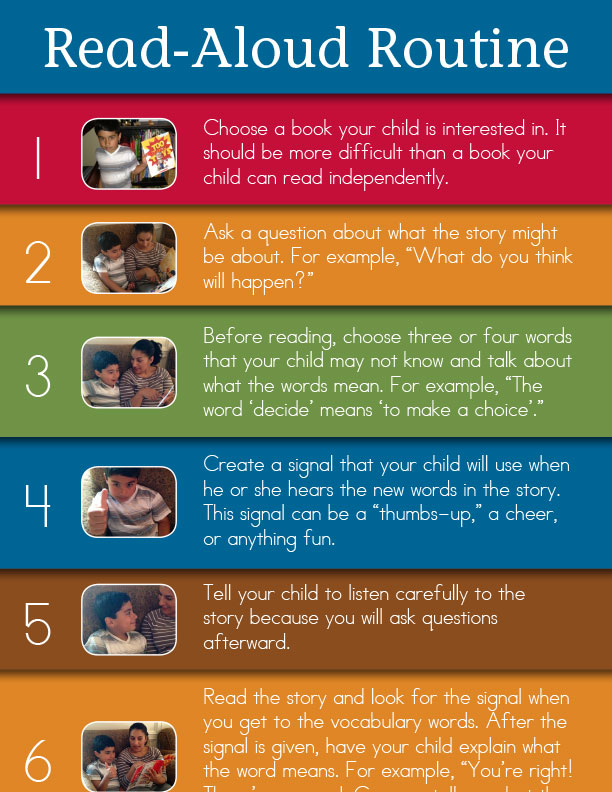
Read Aloud Routine
Families and caregivers can use this strategy to build the vocabulary and comprehension skills of primary-grade English-language learners through daily read-alouds.
Developed by English Learner Institute for Teaching and Excellence
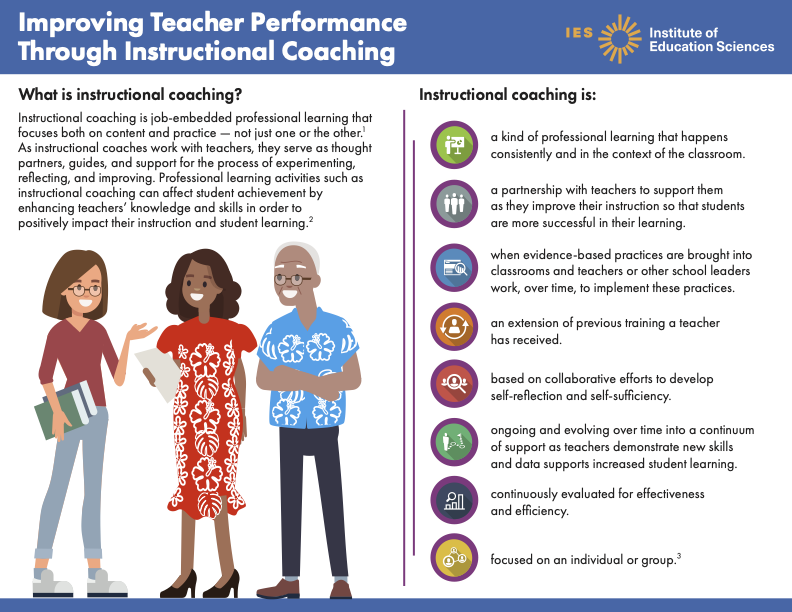
Improving Teacher Performance Through Instructional Coaching
This resource explores how instructional coaching serves as a powerful, job-embedded form of professional learning that enhances teacher practice and student outcomes. It outlines the principles of effective coaching, including collaboration, evidence-based strategies, and ongoing support.
Developed by Institute of Education Sciences
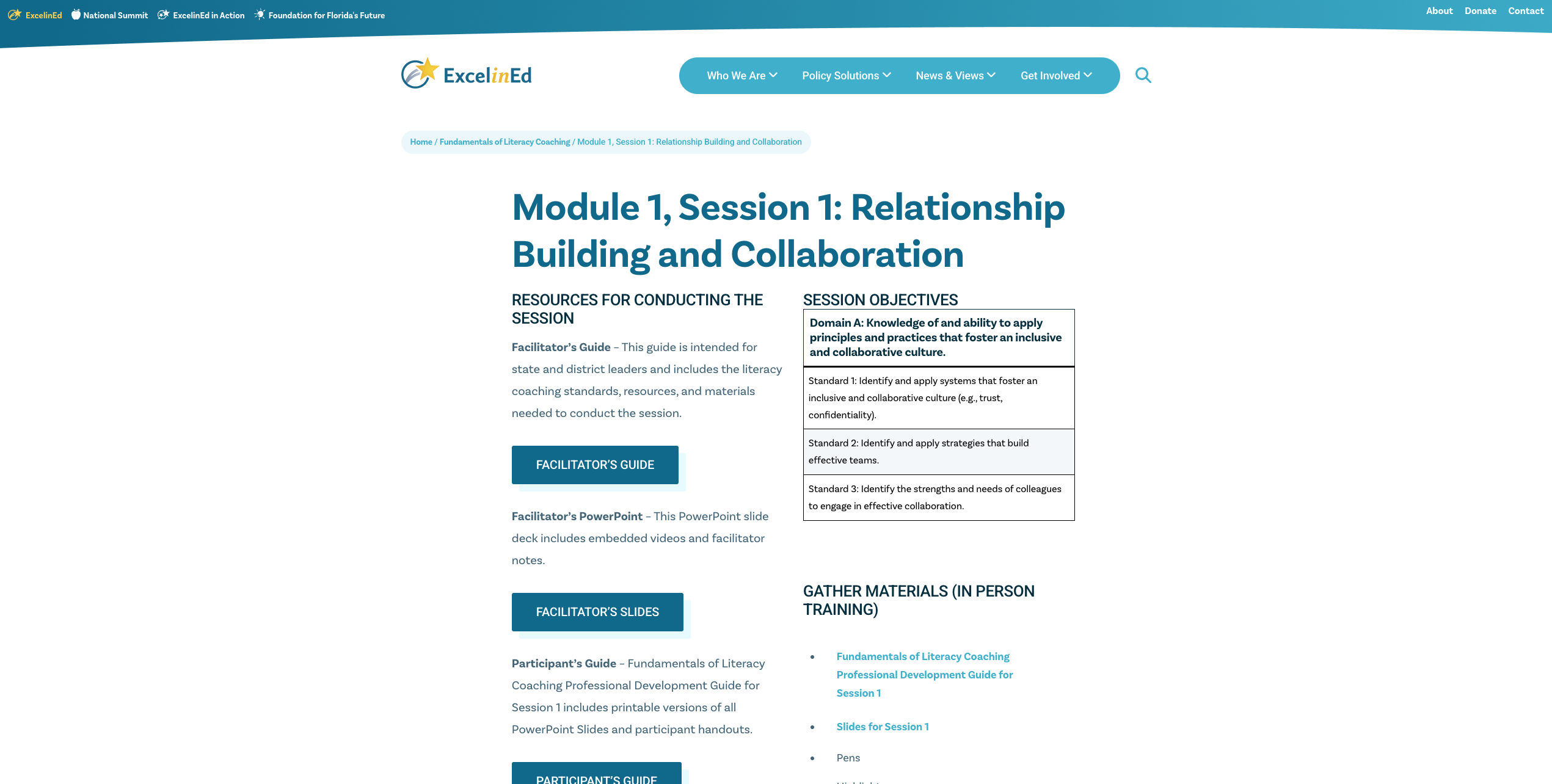
Fundamentals of Literacy Coaching
ExcelinEd and FCRR developed the free Fundamentals of Literacy Coaching resource to help states and districts build strong literacy coaching programs. Designed for leaders, the modules draw on reading research and adult learning theory, offering collaborative learning experiences and equipping coaches with the essential skills to improve instruction and boost student achievement.
Developed by ExcelinED

A Practitioner’s Guide to Improving Literacy Outcomes for Students by Using Evidence to Strengthen Programs and Practices
This resource was developed to help state education agencies and local education agencies implement evidence-based literacy practices in their classrooms. It is based on the U.S. Department of Education’s Non-Regulatory Guidance for using evidence to improve teaching and learning that includes a five-step, continuous improvement cycle.
Developed by REL Southeast

Implementing Evidence-Based Literacy Practices
This roadmap was developed to help state education agencies and local education agencies implement evidence-based literacy practices in their classrooms by following the suggestions of the resources listed in the eight steps.
Developed by REL Southeast

Lead for Literacy Framework
A guide for improving teacher implementation of evidence-based literacy practices within an effective, schoolwide multi-tiered system of support.
Produced under U.S. Department of Education
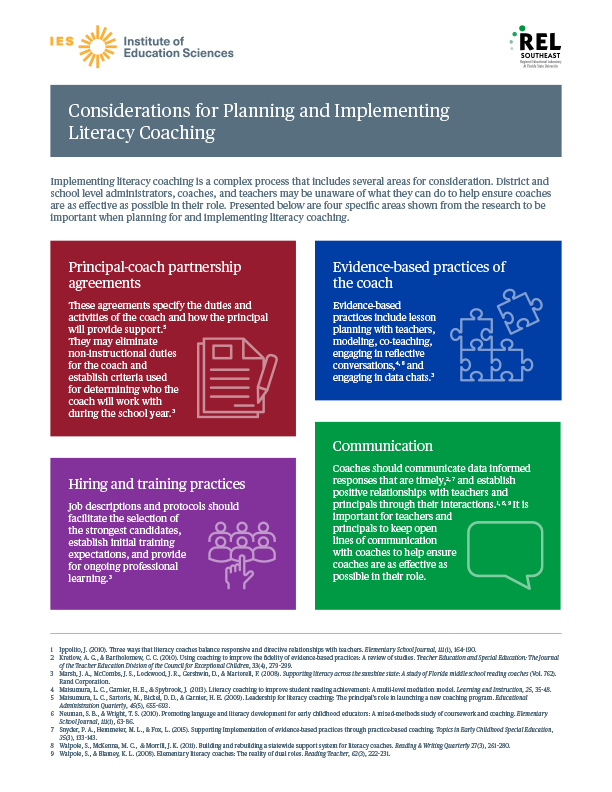
Considerations for Planning and Implementing Literacy Coaching
This infographic presents four areas identified by research to be important when planning for and implementing literacy coaching.
Developed by REL Southeast

School Leader’s Literacy Walkthrough
This tool was developed to assist school leaders in observing specific research-based practices during literacy instruction in kindergarten through grade 2 classrooms and students’ independent use or application of those practices. The tool aims to help school leaders conduct brief and frequent walkthroughs throughout the school year and is aligned to contemporary state standards.
Developed by REL Southeast
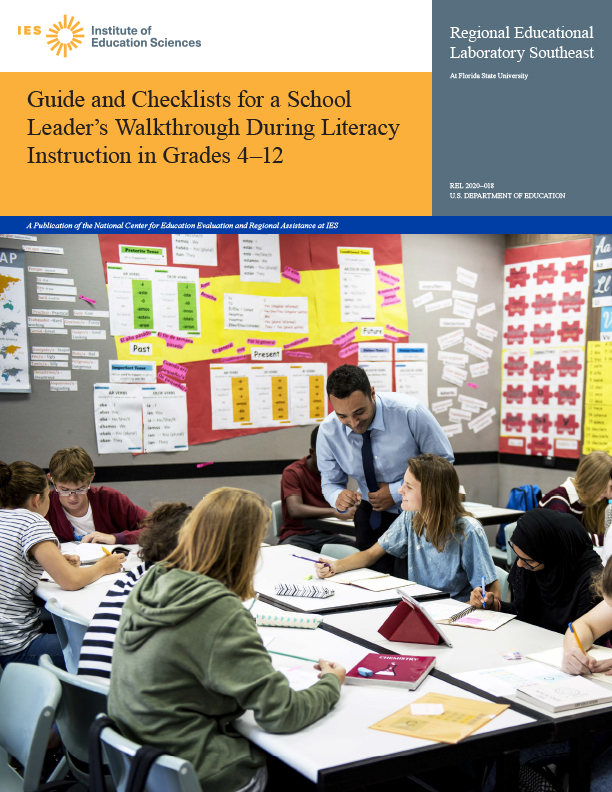
Guide and Checklists for a School Leader’s Walkthrough during Literacy Instruction in Grades 4-12
This tool was developed to assist school leaders in observing specific research-based practices during literacy instruction in grade 4–12 classrooms and students’ independent use or application of those practices. The tool aims to help school leaders conduct brief and frequent walkthroughs throughout the school year. The tool consists of three parts to be used with students in three grade bands: grades 4 and 5, grades 6–8, and grades 9–12.
Developed by REL Southeast
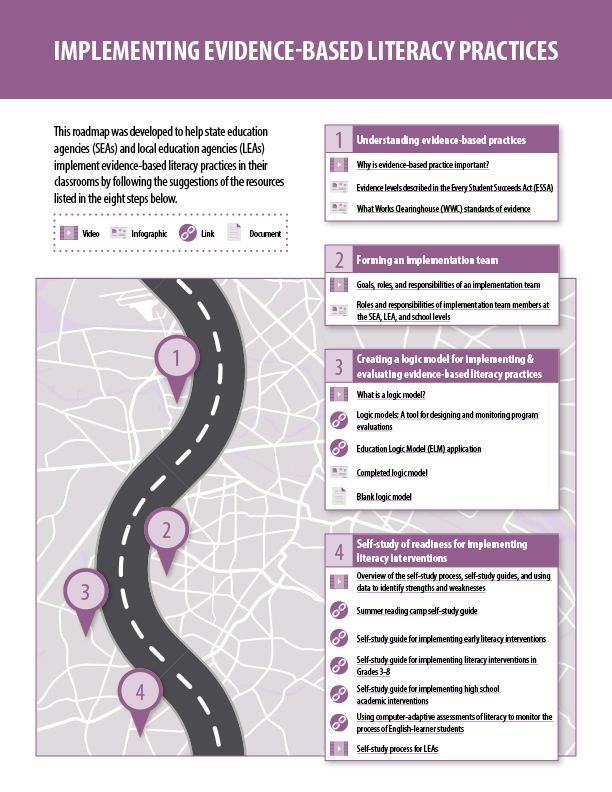
Implementing Evidence-Based Literacy Practices
This infographic depicts a roadmap with eight steps to help state education agencies and local education agencies implement evidence-based literacy practices in their classrooms and highlights key resources.
Developed by REL Southeast
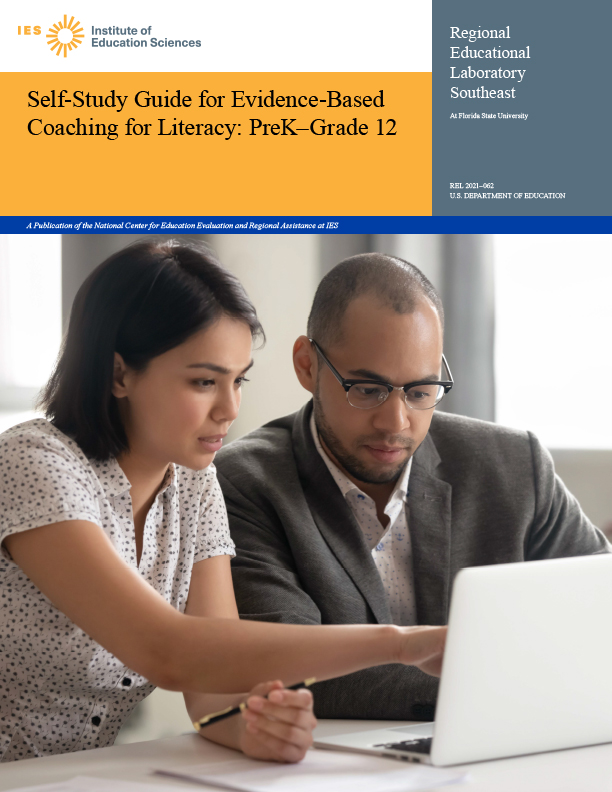
Self-Study Guide for Evidence-Based Coaching for Literacy: PreK-Grade 12
This guide helps administrators, teachers, leaders, and coaches conduct self-studies to help improve the effectiveness of literacy coaching. It is intended to help determine which components of literacy coaching to prioritize based on the data collected. These guides are designed to promote reflection about current strengths and challenges in planning for and implementation of evidence-based literacy practices. The guide is intended to spark conversations among stakeholders and identify areas for improvement. The guide provides templates for data collection and guiding questions for discussion.
Developed by REL Southeast
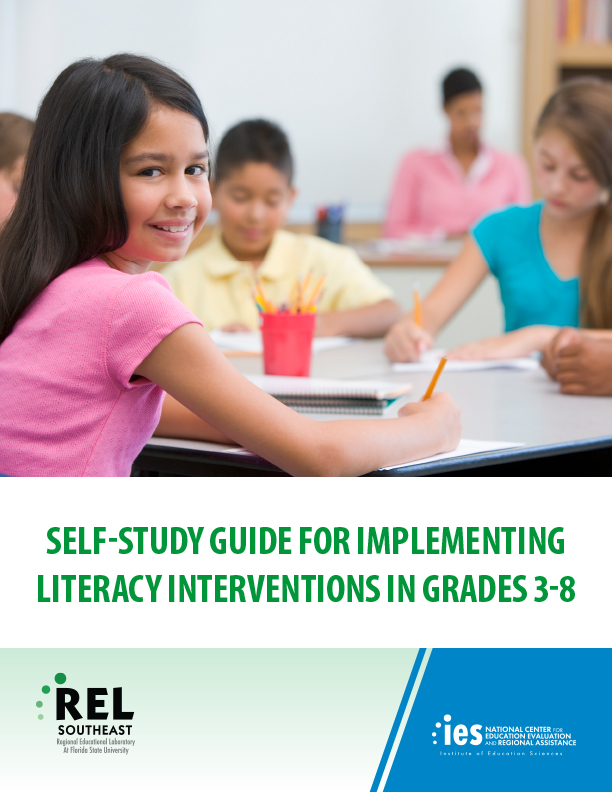
Self-study guide for implementing literacy interventions in grades 3-8
This guide helps district- and school-based practitioners conduct self-studies for planning and implementing literacy interventions for students in grades 3-8. These guides are designed to promote reflection about current strengths and challenges in planning for and implementation of evidence-based literacy practices. The guide is intended to spark conversations among stakeholders and identify areas for improvement. The guide provides templates for data collection and guiding questions for discussion.
Developed by REL Southeast
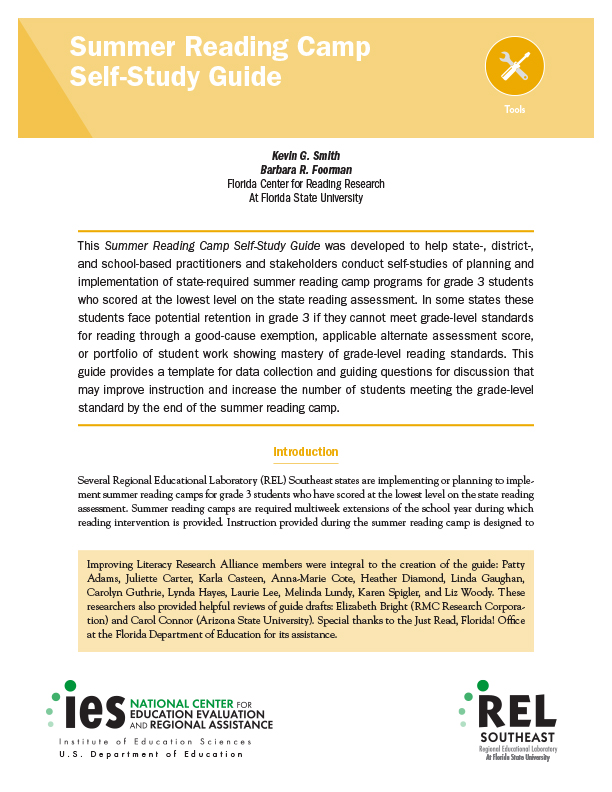
Summer Reading Camp Self-Study Guide
This guide helps facilitate self-studies of planning and implementation of state-required summer reading camp programs for grade 3 students who scored at the lowest level on the state reading assessment. These guides are designed to promote reflection about current strengths and challenges in planning for and implementation of evidence-based literacy practices. The guide is intended to spark conversations among stakeholders and identify areas for improvement. The guide provides templates for data collection and guiding questions for discussion.
Developed by REL Southeast
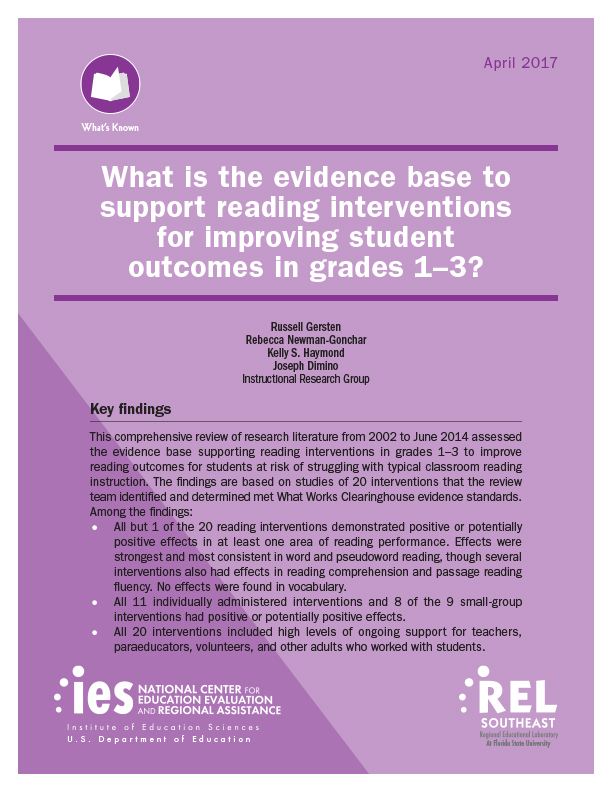
What is the evidence base to support reading interventions for improving student outcomes in grades 1-3?
This report provides administrators, school psychologists, counselors, special educators, and reading specialists with a summary and analysis of the evidence that supports the use of reading interventions in grades 1–3.
Developed by REL Southeast
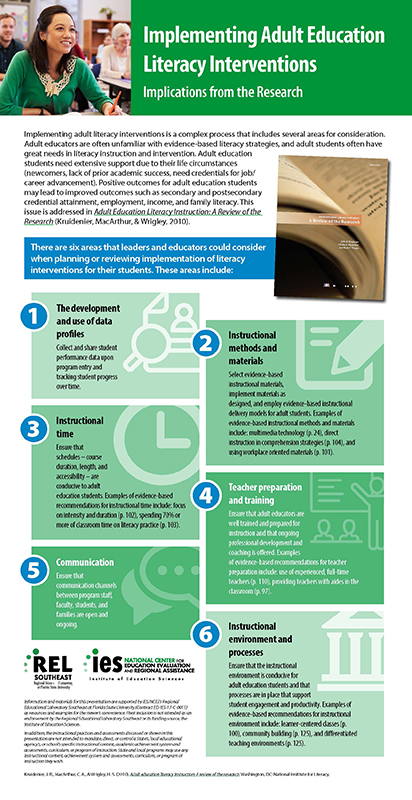
Implementing Adult Education Literacy Interventions
This infographic highlights six key areas for consideration when implementing adult literacy interventions.
Developed by REL Southeast
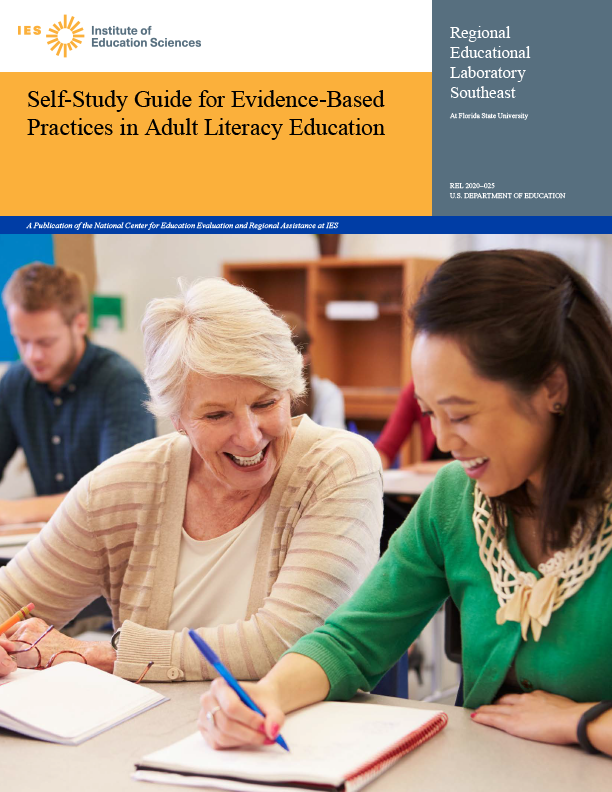
Self-Study Guide for Evidence-Based Practices in Adult Literacy Education
This guide helps adult literacy education providers conduct self-studies for improving program performance. It was designed to help educators consider which types of evidence to collect and which components of adult education instruction may be important for evaluating implementation. These guides are designed to promote reflection about current strengths and challenges in planning for and implementation of evidence-based literacy practices. The guide is intended to spark conversations among stakeholders and identify areas for improvement. The guide provides templates for data collection and guiding questions for discussion.
Developed by REL Southeast
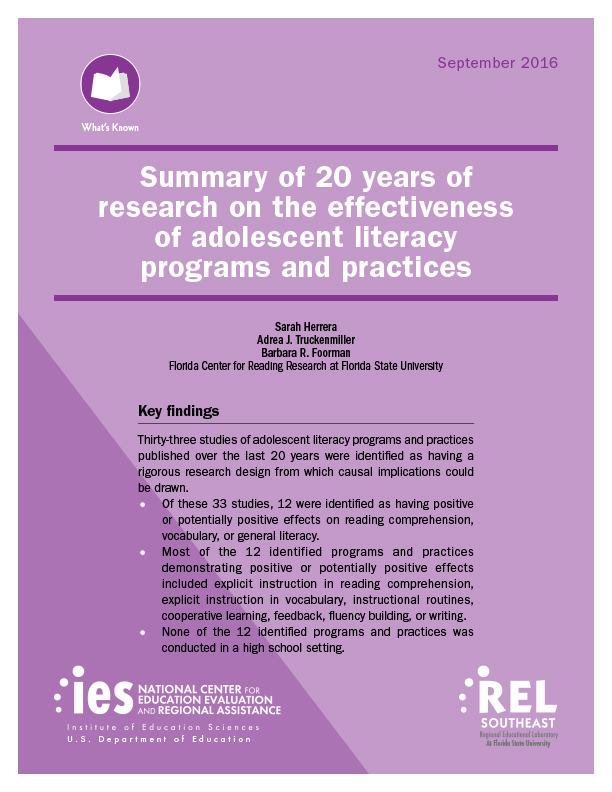
Summary of 20 years of research on the effectiveness of adolescent literacy programs and practices
This literature review includes peer-reviewed studies of reading comprehension instructional practices conducted and published between 1994 and 2014 and summarizes the instructional practices that have demonstrated positive or potentially positive effects in scientifically rigorous studies employing experimental designs.
Developed by REL Southeast
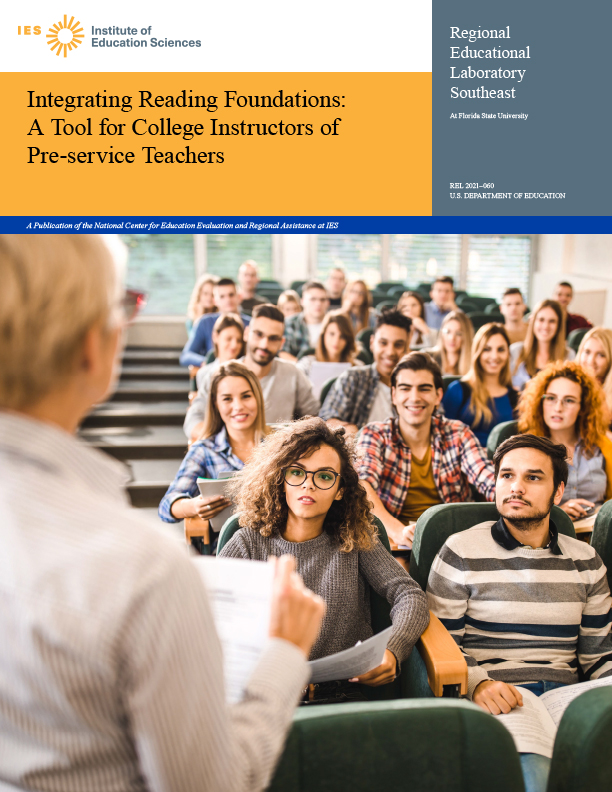
Integrated Reading Foundations: A Tool for College Instructors of Pre-service Teachers
This tool is designed to assist college instructors in building pre-service teachers’ knowledge of evidence-based strategies for helping students in kindergarten through grade 3 acquire the language and literacy skills to succeed academically. This tool is intended to be used in conjunction with the Foundational Skills to Support Reading for Understanding in Kindergarten through 3rd Grade practice guide produced by the What Works Clearinghouse™ (WWC).
Developed by REL Southeast

